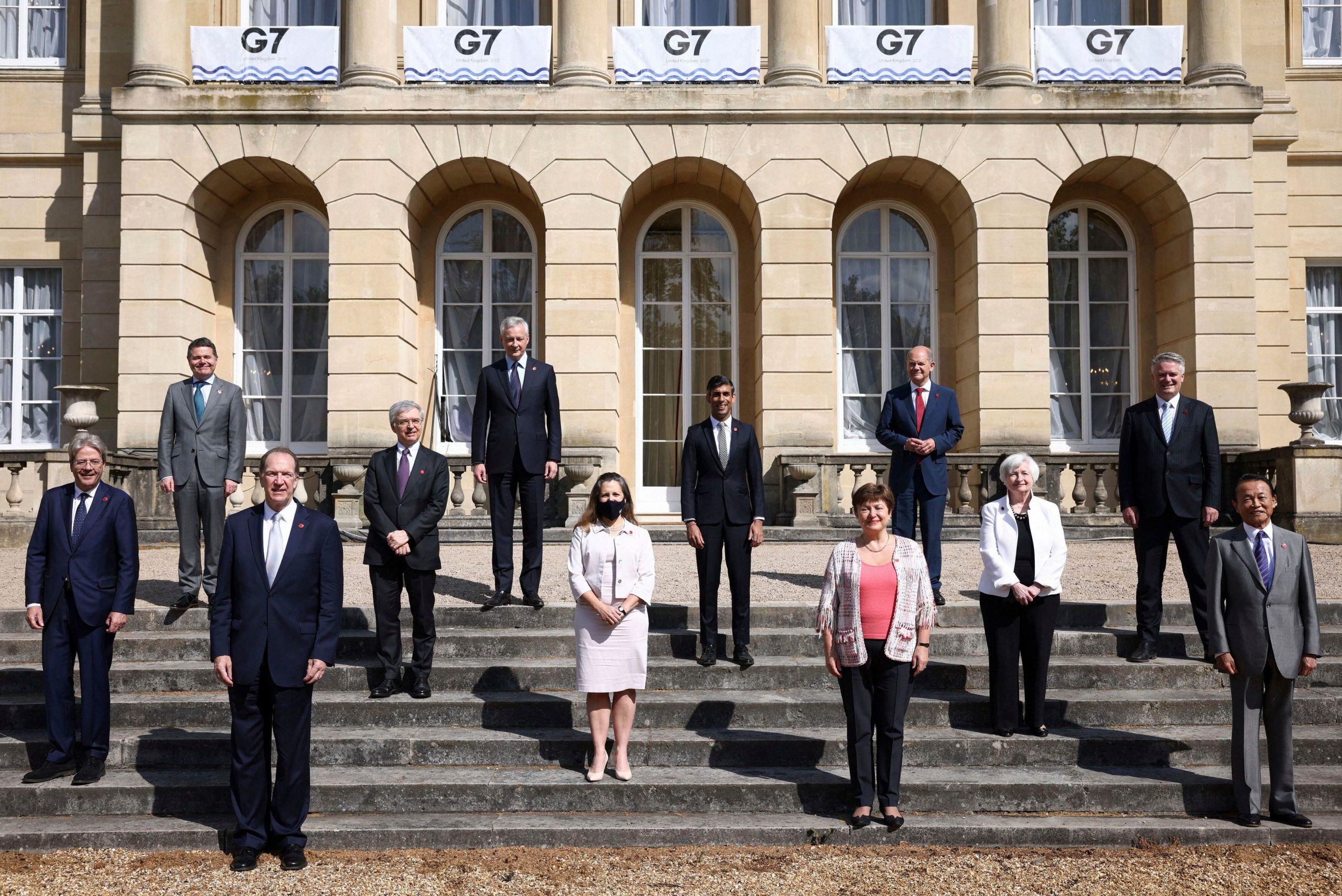A group of
the world’s wealthiest countries on Saturday agreed upon a historic global
minimum tax rate, of 15%, for multinational corporates across the world. The
G7, or Group of Seven, nations rallied behind the US-led plan to limit the
ability of corporate giants to maneuver tax systems to boost their profits,
particularly when the world is reeling from the economic fallout of the coronavirus
pandemic.
“I’m
delighted to announce that G7 finance ministers… have reached a historic
agreement to reform the global tax system,” AFP quoted British Finance Minister
Rishi Sunak as saying after a meeting in London, which was attended by his
counterparts from Canada, France, Germany, Italy, Japan and the United States.
Why is the global minimum tax needed?
The deal
aims at making big corporates, particularly tech giants, to pay more to governments
across the world, which have for decades been engaged in a “race to the bottom”
to attract these firms with low tax rates and other exemptions.
Big
economies are also looking at preventing multinationals from shifting their
profits, and tax revenues, from their home countries – with higher tax rates – to
low-tax havens, closing off cross-border taxation loopholes, according to a Reuters
report.
Also Read | In search of normality, Israel-UAE sign treaty to avoid double taxation
Multinationals
shift income from intangible sources such as drug patents, software, royalties
on intellectual properties, etc to those countries, to avoid paying taxes in
their home countries.
But with
the 15% minimum global tax rate, the Joe Biden administration hopes to increase
its tax base while ensuring American companies are not at a financial
disadvantage.
How will the tax work?
The global
minimum tax rate on multinationals will be applicable on profit made in
countries other than the home country.
Governments
across the world will still be eligible to levy any rate of tax, but if a firm
pays lower thaHow lenders recover loans if the borrower dies?n the minimum rate in any particular country, their home country
can charge the remaining balance, thus removing the advantage of shifting profits
overseas.
Also Read | All you need to know about the Fisher-Price product-related infant deaths
There are
still some contentions that need to be ironed out, like whether investment
funds and real estate investment should be covered and when the new tax rates should
be applied.
Is everyone on board with the rate?
The global
minimum tax rate has been agreed at 15%, which was proposed by the US, a rate
higher than countries such as Ireland but lower than the minimum rate in G7
nations.
In the lead
up to the G7 meeting today, the rate being discussed was 21%, which was backed
by France. French economy minister Bruno Le Maire said that the 15% rate is
“a minimum. For us, it’s a starting point” and that it should be the base
for “a more ambitious level of taxation”.
Also Read | How lenders recover loans if the borrower dies?
But there is
opposition to the plans as well. Ireland’s has economy has boomed because of
the billions in investment from multinationals, with giants such as Facebook
and Google establishing their Europe headquarters in the country because of
their 12.5% tax rate, one of the lowest in the world.






